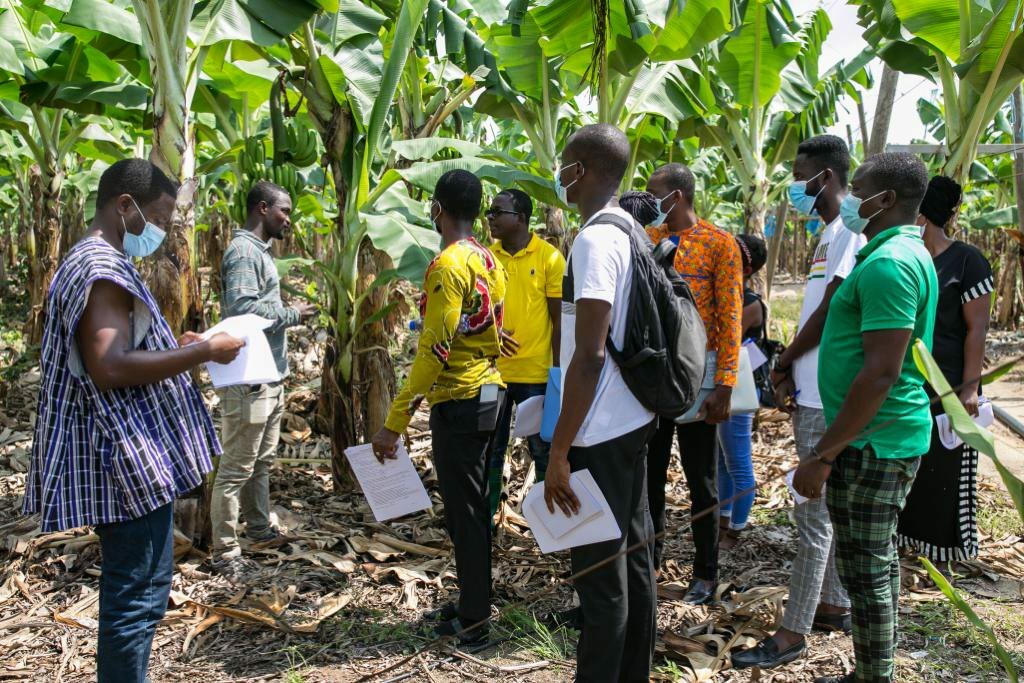53 local experts trained on agribusiness certification standards
This March, fifty-three experts have received training on organic and fairtrade certification standards for businesses in agriculture across Ghana. The training qualifies the participants to work as farm inspectors and lead auditors for local companies, thus making the Ghanaian firms in the agribusiness more competitive while creating jobs.
Crop production is a major reason for negative environmental and socioeconomic impacts such as deforestation, loss of biodiversity, pollution due to the extensive use of fertilizers, unfair compensation and labour practices, just to name a few. Mr. Peter Koomson, Technical Advisor at the Deutsche Gesellschaft für Internationale Zusammenarbeit (GIZ) GmbH in Ghana, knows what this means for the Ghanaian agribusiness in today’s market:
‘There is an increasing consumer demand for products with decreased negative sustainability impacts. Thus, certification standards have gained traction as one of the key mechanisms for ensuring sustainable production and guaranteeing mutual benefits across value chains,’ he says.
As a result of such consumer demand, most Ghanaian producers are precluded from participating in global markets because of the high financial and technical burden arising from the adoption of certification standards.
To make Ghanaian small and medium-sized enterprises (SMEs) in the agribusiness able to better meet the market’s demand for sustainablity certifications, a six-week training curricula covering different certification schemes, their criteria and principles, was developed. The participants were trained on current sustainability standards that target the crop and food production sectors such as GlobalGAP, the Fairtrade seal, Rainforest Alliance, and certification for organic production. In addition to theoretical education, the 23 representatives from selected Ghanaian agribusiness firms and 30 unemployed graduates from higher education insitutions received training on soft skills development.
The training's objective is to build local capacities to provide certification advisory services to Ghanaian agri-SMEs. This will help make Ghanaian companies audit-ready without having to incur high costs for external advisors while creating jobs and improving the Ghanaian business environment. The training was conducted by the Pyramid Centre for Sustainable Development with support from Invest for Jobs through GIZ Ghana.
 © GIZ
© GIZ
‘The global certification proliferation has been largely driven by changing consumer preferences and behavior in developed countries, partly due to rising living standards and concerns about food safety and the environmental and social consequences of agricultural production,’ explaines Dr. Eric Brako Dompreh, Executive Director of the Pyramid Centre for Sustainable Development.
Apart from the numerous benefits to Ghanaian agri-SMEs, the certification training will act as a springboard for beneficiaries to contribute to an enhanced agribusiness environment and increase their employability in the face of Ghana's high youth unemployment rate.
By now, the impact of the training and certification has started to take effect, with 5 beneficiaries already finding employment. ‘It was difficult to find a job after more than a year of graduating from the university. The knowledge gained from this training as well as the certification from GIZ helped me to find a job as a Field Officer in an agribusiness firm,’ says Sakina Acheampomaa, one of the project’s beneficiaries.
 © GIZ
© GIZ